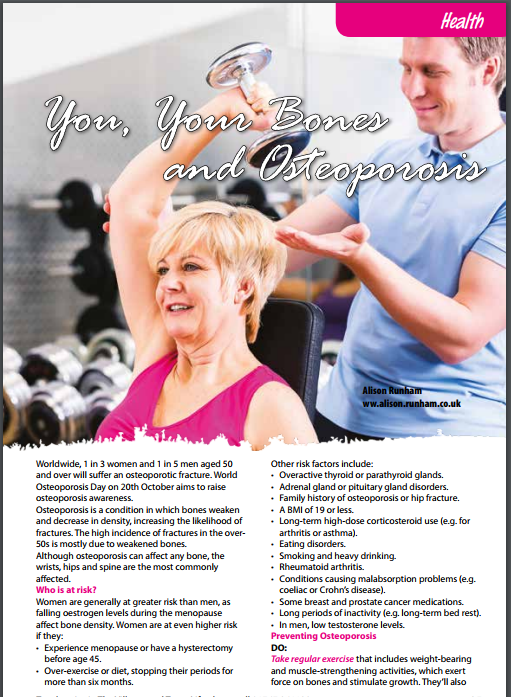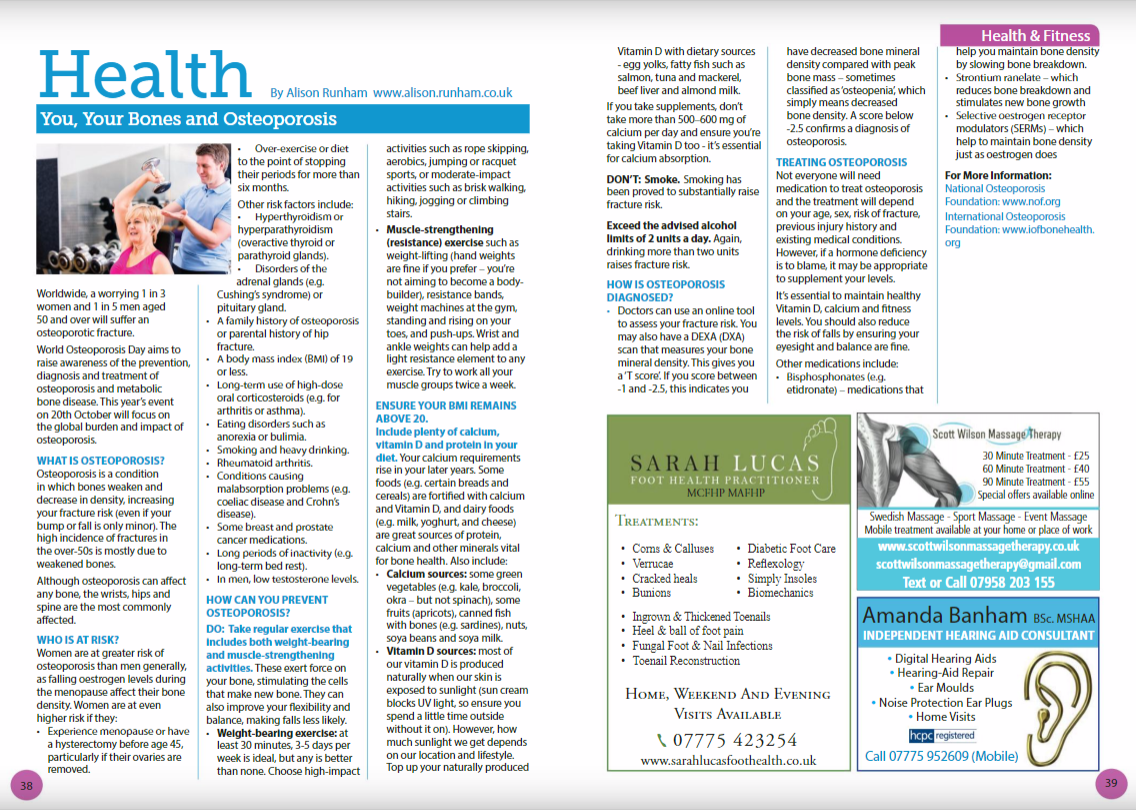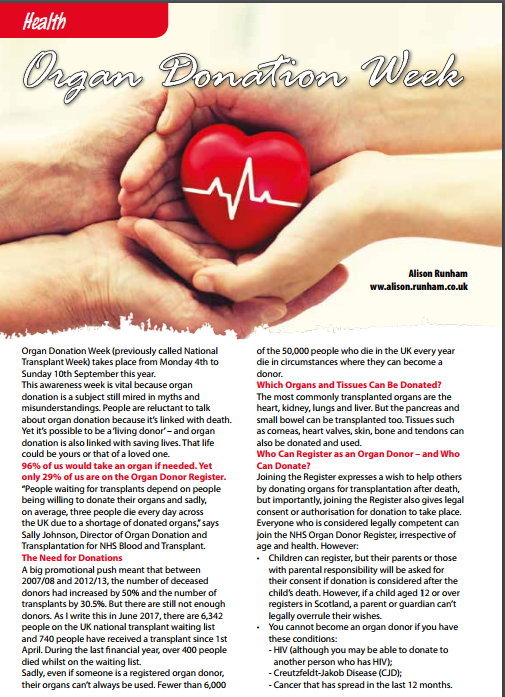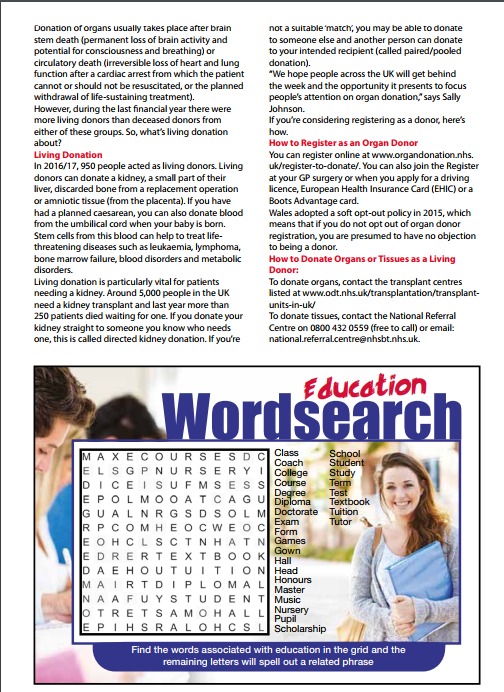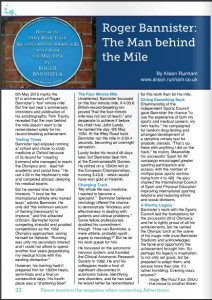My topical article for October was about World Space Week. It was fun to research something that didn’t fall into a health or history category!

It was fascinating to learn about not just the work NASA is doing, but the work being undertaken by private companies determined to help humanity explore deep space, colonise other planets and benefit from the resources the universe has to offer.
In our lifetimes, we may see a team go into deep space on the Orion Multi-Purpose Crew Vehicle that Lockheed Martin is building for NASA – opening up the universe and its secrets for us.
Meanwhile, Elon Musk’s Space X company is already shuttling cargo back and forth to the ISS, set to add crew members to its manifest as early as next year. The reusable rockets it’s working on could revolutionise the way we see space travel by making it much, much cheaper and convenient.
And if Planetary Resources have a say in the matter, we may also see the production of rocket fuel in space (from water-rich carbonaceous chondrites) and the mining of asteroids for precious metals.
NASA itself is not idle, of course, intending to investigate the Kuiper belt and deepen our understanding of ice dwarfs and how they evolve.
As for me, I’m torn between thinking these billions could be better spent here on Earth and acknowledging that many technologies developed for space eventually benefit people right here – and that, with the state of the Earth already, perhaps planning for safe boltholes is an entirely sensible option.
If you’d like to delve deeper, why not visit the World Space Week website yourself, which has links to the projects and companies at the forefront of space technology and exploration.
